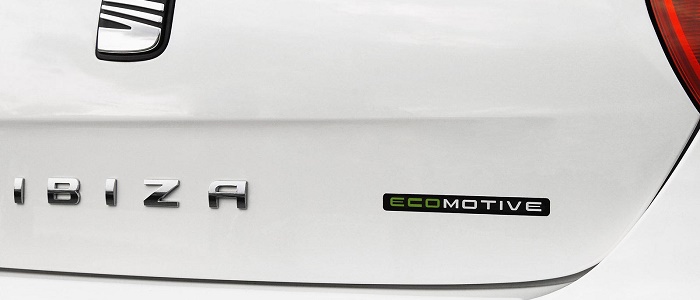


What does actually the EcoMotive badge mean on vehicles by Seat?
Term that designates the use of technology of the same name by Volkswagen (BlueMotion by Volkswagen, Ultra by Audi, GreenLine by Škoda). This technology aims to reduce fuel consumption and, consequently, the emissions. This is accomplished by introducing highly efficient engines combined with special multi-phase exhaust systems, longer gear ratios as well as Start-Stop mechanism. Apart from that there are changes aiming at improved aerodynamics, programmed battery charging system (so the alternator only runs when necessary) as well as low rolling resistance tires. On some models there is also a regenerative braking system available which charges a special battery used for the frequent engine starts due to the Start-Stop technology.
All this affects average fuel consumption in a positive manner, so in 2010 a Passat BlueMotion made it to the Guinness Book of Records, achieving 2,457 km on a single tank of fuel. It does come at a price though and EcoMotive cars don't offer the same performance as regular TDI or TSI vehicles. There is also the increased complexity issue, imposed by special exhaust gases emission control systems such as the diesel particulate filter and oxidising catalytic converter.
List of cars using this badge






















